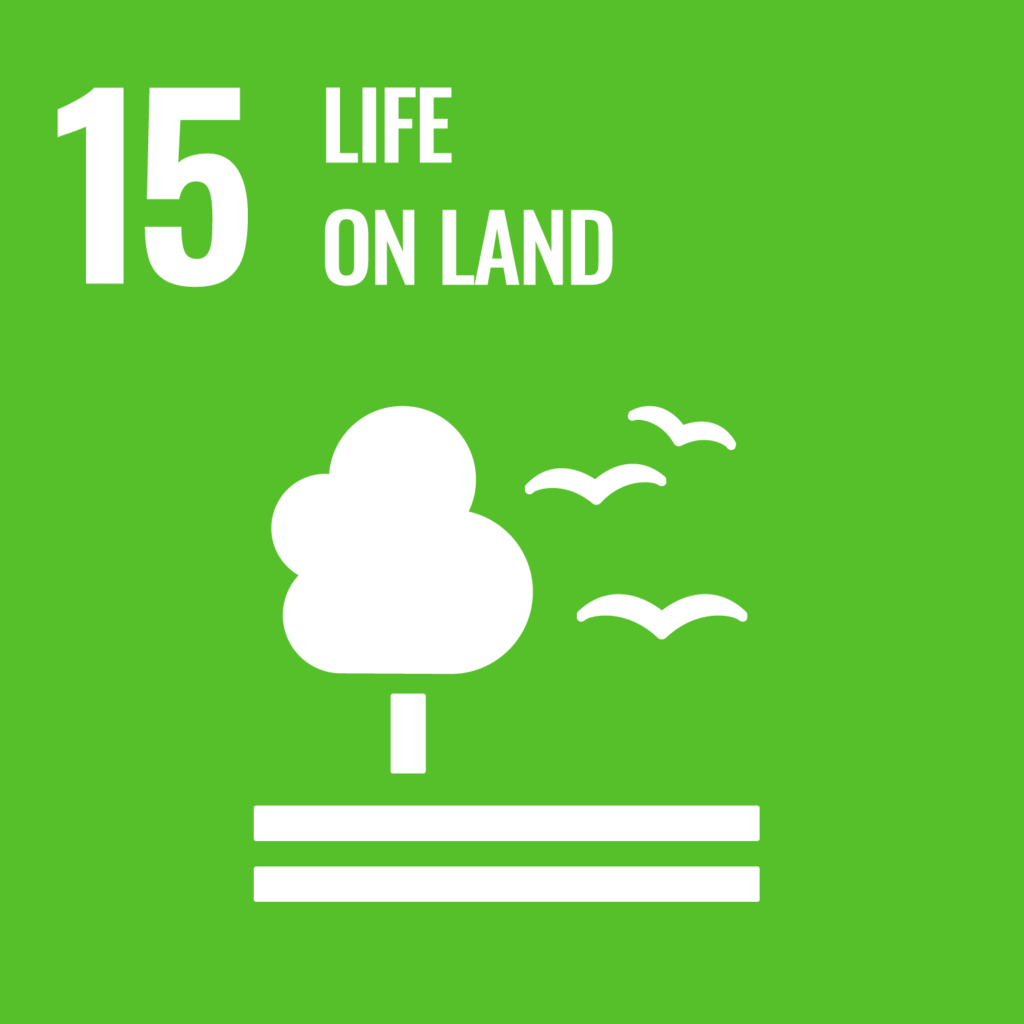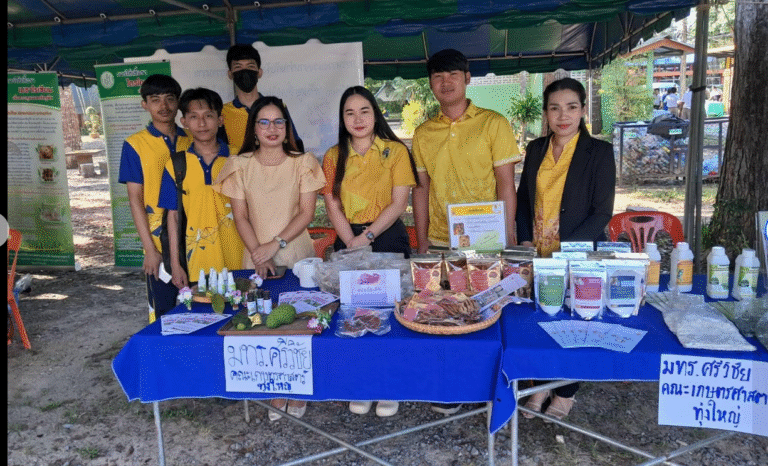Reporters: Asst.Prof.Dr. Prapot Maliwan
Assoc.Prof.Dr. Pornsil Seephueak
Asst.Prof.Dr. Nion Chirapongsathonkul
Asst.Prof.Dr. Worawitoo Meesook
Evidence Date: during 2024 Jan-Dec
Related SDGs: 15
Related Indicator: 15.4.3
Details:
The Plant Pathology Laboratory, Faculty of Agriculture, Rajamangala University of Technology Srivijaya, under the supervision of Associate Professor Dr. Pornsil Seephueak, actively engages in hazardous waste management to ensure sustainable research practices. By collaborating with the model laboratory at the Department of Chemistry, Faculty of Science, Prince of Songkla University, the team has exchanged knowledge and experiences on effective chemical waste handling. This collaboration promotes practices such as waste minimization, chemical substitution, and process modification, which are crucial for reducing the generation of hazardous substances. These actions directly support SDG 15: Life on Land, as they help prevent soil and water contamination, thereby protecting terrestrial ecosystems and promoting sustainable use of natural resources.
Through continuous learning and innovation, the laboratory has developed a comprehensive system for hazardous waste management that aligns with environmental sustainability goals. Staff members have been trained to properly segregate, store, and dispose of chemical waste according to national safety standards. They also share their knowledge with students and researchers through workshops and demonstrations, creating awareness of environmental responsibility in scientific research. This knowledge transfer fosters a sustainable research culture that integrates safety, innovation, and conservation, contributing to the reduction of pollution and protection of biodiversity in line with SDG 15 targets 15.1 and 15.3, which emphasize ecosystem conservation and land restoration.
The insights gained from the exchange and training have been applied to improve laboratory facilities and safety practices. As a result, the laboratory now operates with enhanced safety measures, ensuring a healthier working environment for students and researchers while minimizing environmental risks. The adoption of environmentally responsible waste management not only strengthens compliance with safety regulations but also demonstrates a strong commitment to sustainable innovation. This initiative serves as a model for integrating research, education, and sustainability, illustrating how responsible waste management in laboratories can contribute to the broader mission of preserving terrestrial ecosystems under SDG 15.
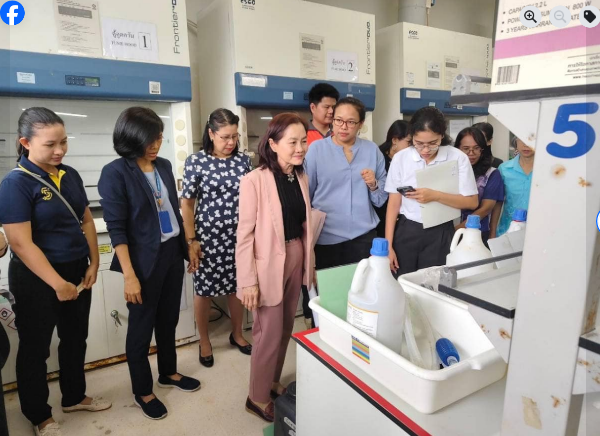
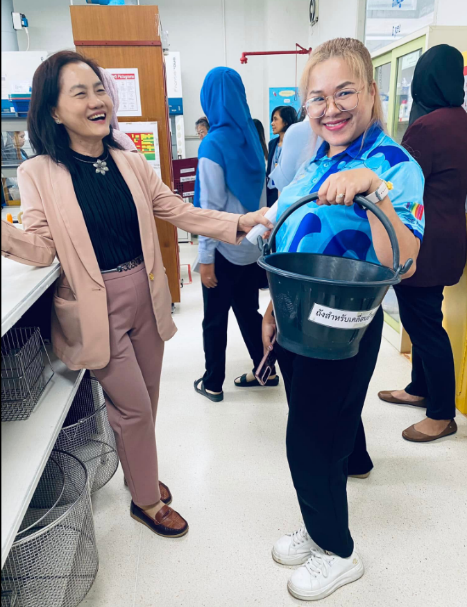
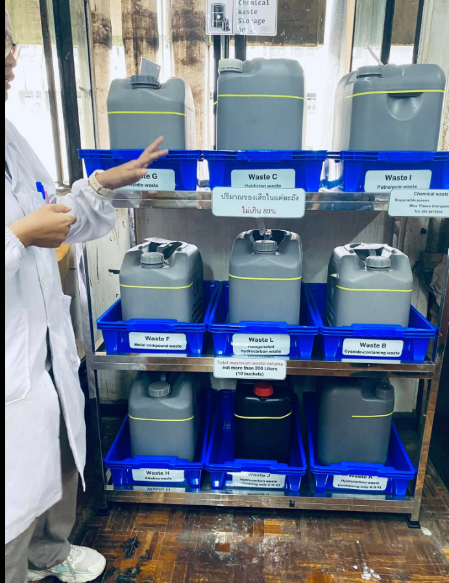
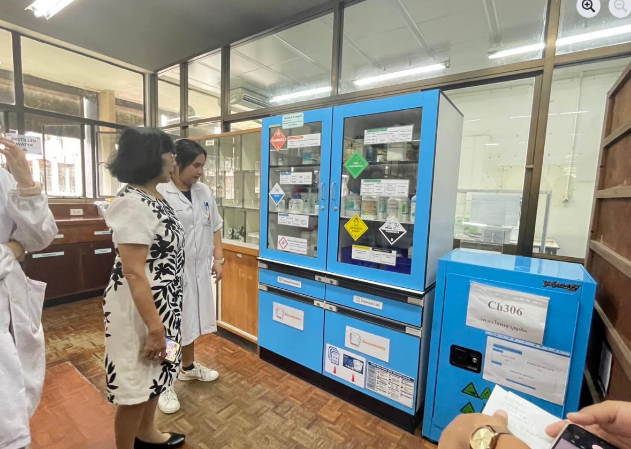
Moreover, our university supported the Community-Based Agricultural Waste Management for Sustainable Ecosystems project. In addition to laboratory waste management, Associate Professor Dr. Pornsil Seephueak has extended sustainability efforts to community-based agricultural waste management in Tha Kham Subdistrict, Hat Yai District, Songkhla Province. Agricultural practices often generate large amounts of waste, such as spent mushroom substrates that, if left unmanaged, can become breeding grounds for pathogens and pests. To address this issue, Dr. Pornsil collaborated with the local community to develop environmentally friendly waste treatment methods. This initiative aligns with SDG 15: Life on Land, by preventing the accumulation of agricultural waste that can harm soil health and local ecosystems. Through waste reuse and circular resource management, the project promotes sustainable land use and ecosystem preservation.
The project emphasizes the transformation of agricultural waste into beneficial organic compost, supporting both sustainable agriculture and waste reduction. Used mushroom blocks are collected and processed into organic fertilizer, which is then applied to nourish plants and improve soil fertility. This practice not only reduces environmental pollution but also enhances the livelihoods of local farmers by lowering input costs. By turning potential waste into valuable resources, the initiative exemplifies the principles of the circular economy while advancing SDG 15.3, which focuses on combating land degradation and restoring soil productivity. It also fosters community awareness about sustainable agricultural practices and environmental stewardship.
Through collaboration between the university and the community, this innovative waste management model integrates research, education, and local wisdom. Students and researchers participate in knowledge-sharing activities, learning from real-world examples of sustainable waste utilization. The approach demonstrates how scientific knowledge and local practices can work together to promote ecological balance and long-term sustainability. By reducing the negative impacts of agricultural waste and improving soil health, this project contributes directly to the conservation and restoration of terrestrial ecosystems, reflecting the spirit of SDG 15 and serving as a replicable model for other agricultural communities across Thailand.
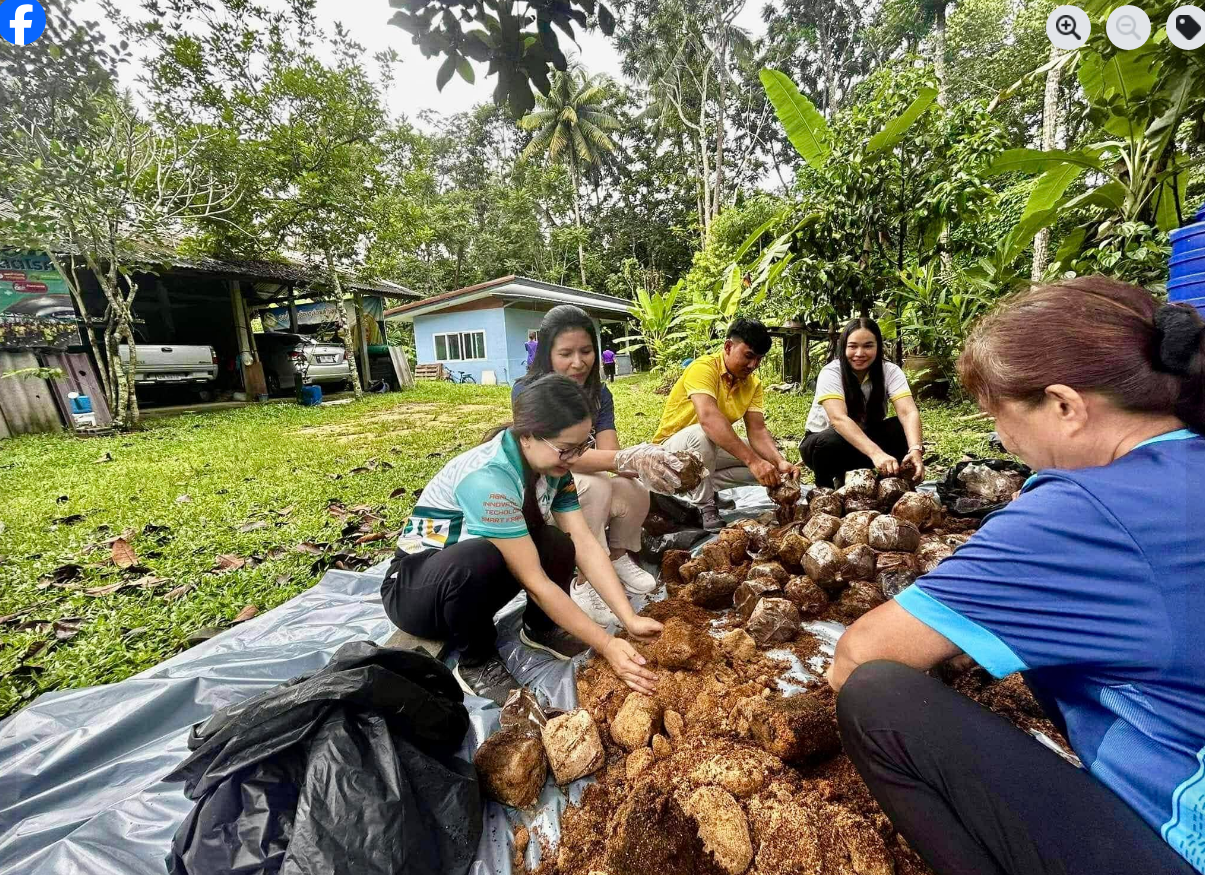
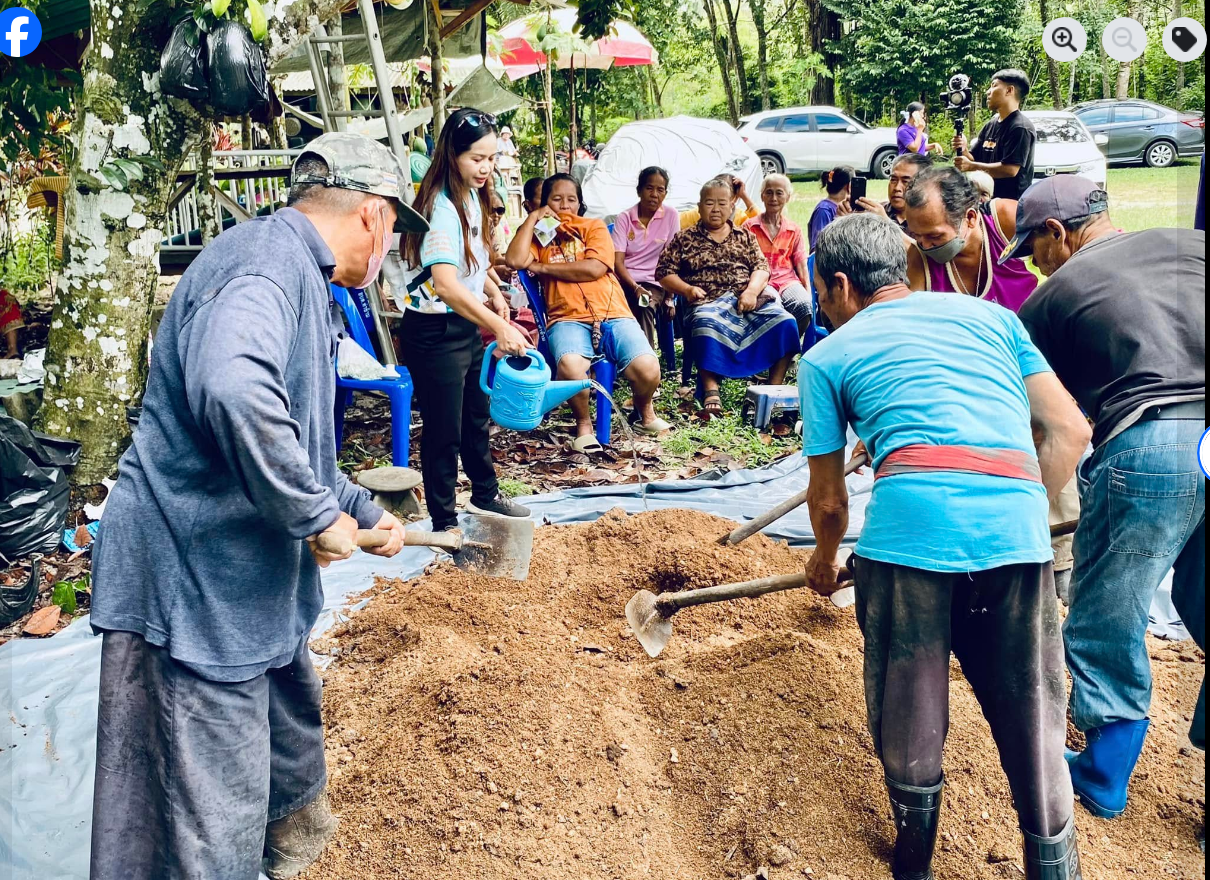
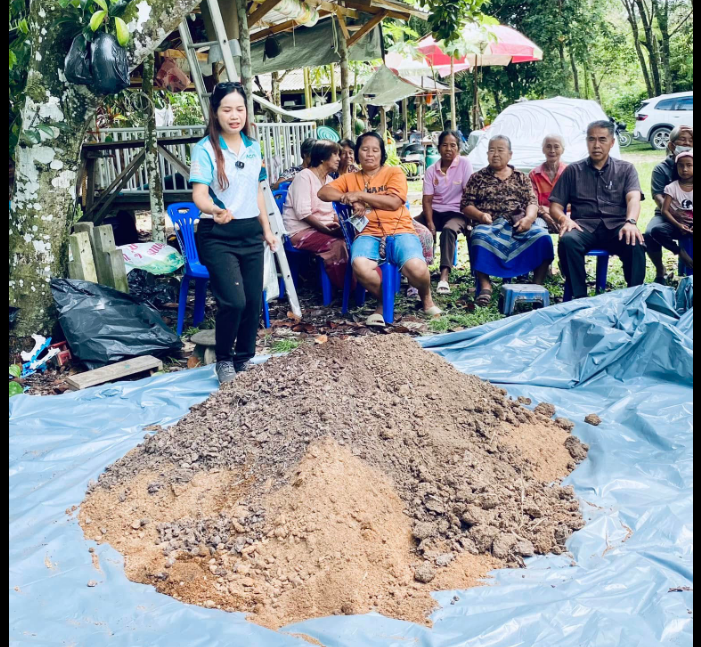
Links:

